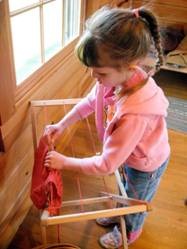
Our world is a weird and wonderful place, but sometimes, we act in weird ways that make it not so wonderful anymore. In many situations, there is a conflict between what is good for us personally and what is good for everybody. In others, the conflict is between what is good for us right now and what will be good in the future. Without considering the implications of our actions, they sometimes make the world just a little bit less pleasant.
Of course, when we do many of these things and lots of other people do them too, the decline accelerates. I often think of my kids and the kind of place I would like them to have when they grow up and it makes me worry.
When we lived in Texas, there was a period of frost every year. That was bad for the lawn, roads were slippery during morning rush hours and there were always accidents because of the frost.
Yet, a friend of mine found a way to have fun with his kids during that time. Before going to bed on Friday night, he would water his driveway, which was short, straight and steep. When his boys woke up on Saturday morning, the driveway would be ready for some extreme sliding!
This went on for a while and nearly became a family tradition, except one day, my friend’s mother-in-law came to visit on Saturday morning and slipped on the ice. She was thoroughly upset with my friend’s carelessness and promptly sued him (and her daughter, who was married to him) for her medical expenses.
The following year, my friend’s insurance raised his premium and he stopped wetting the driveway.
Read Topsy Turvy World (4) »















